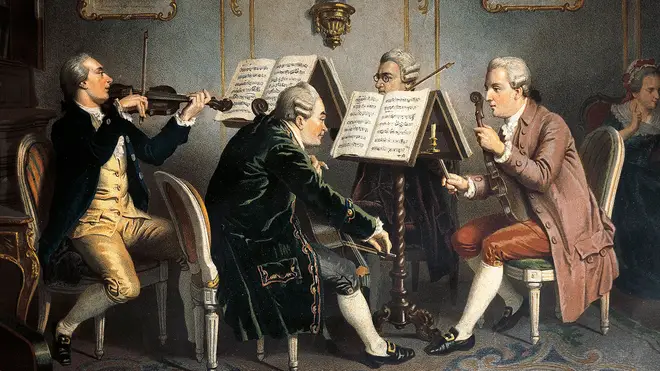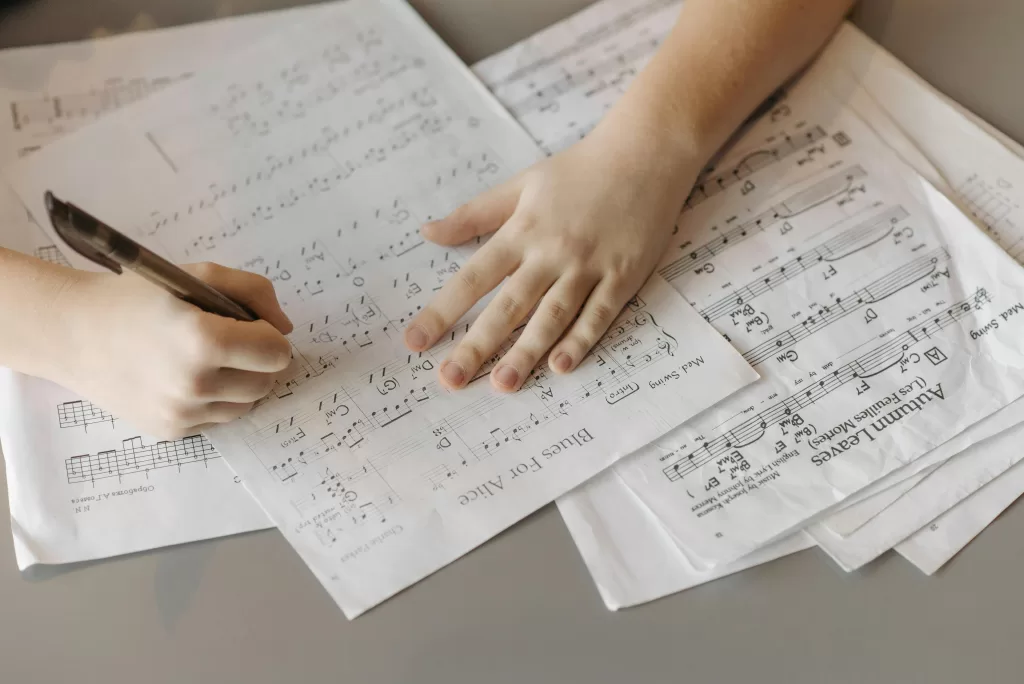Reading time: 4 minutes |
Most of us think that music theory is only a thing for the exams; it’s much more than that. It explains how music works and why some pieces sound the way they do. If you are starting out or have been playing for a while, learning theory can open new ways to enjoy, perform, or even create music. In this article, I will be covering why music theory matters.

1. Make Sense of What You Play
When we perform a piece of music, we’re often following a set of rules—whether we realise it or not. In fact, most of the time we are probably too occupied with the technical aspect of the music, but when you step back and analyse the score properly, you may want to look at the following things – that’s where music theory comes into play:
- How scales, chords, and key signatures fit together
- Why certain harmonies sound “right” and others create tension
- How rhythm and phrasing shape a piece’s character
With this knowledge, you are able to approach music with much more confidence; you’re not just playing the notes on the page but you actually know their functions. I liken music to language: it’s like grammar and it has its rules. A perfect cadence is like a full stop, whereas an interrupted cadence can be likened to a question mark, and modulation is almost as if bringing us to a new setting of a story. Each of these moments has different implications, and playing them with the right inflections takes your performance to another level.
2. Communicate with Other Musician
It also provides a common language, making working with other musicians far easier: not just between you and your friends, but between you and the composer who wrote the piece that you play. This means learning music theory can help you:
- Understand musical instructions like tempo changes and dynamics
- Rehearse more efficiently with ensembles or accompanists
- Talk about musical ideas clearly, whether in performance or in programme notes
This shared understanding makes collaborations run smoothly and more rewarding. Likewise, knowing what the composer means will give your performance a lot more authenticity. We all just need to speak in a common language!
p.s. German composers like Schubert and Mahler tend to use German terms in their scores, and the French ones like Ravel and Debussy use French… well, it does make things a little more complicated than our usual Italian terms, but isn’t learning a new language fun?
3. Creativity in Composition and Improvisation
Music theory isn’t just for interpreting other people’s work—it’s also a tool for your own creativity. As the saying goes, you can break rules, but first you need to learn them. With a solid understanding of music theory, you can:
- Write music with clearer structure and intention
- Improvise melodies and harmonies without feeling lost
- Experiment while knowing how to make things work musically
Instead of limiting creativity, theory gives you more options and helps you make better artistic/musician choices. Debussy is one of my favourite composers, because he clearly knows his rules, but he also dares to break them and make his own (and often very distinctive) music. Listen to this.
4. Prepare for Advanced Exams and Performances
And this is just practical: if you’re planning to take ABRSM Grades 6-8 in Practical or Performance, passing Grade 5 Music Theory is always a prerequisite.
There is surely a good reason behind it though, as this ensures you have the theoretical background needed to understand more complex pieces. You can’t play Chopin’s nocturnes without a good knowledge of the intricate art of secondary dominant (he is the master of it, in my opinion). Likewise, as the pieces’ duration get longer, it’s also important to learn about form—above all, the sonata form—in order to orient yourself in these more complex worlds.
Bottom line, even if you’re not aiming for exams, theory helps you feel prepared for challenging repertoire. In fact, if you are considering taking music seriously at university or conservatoires at all, having at least a Grade 5 Theory certificate is often a must. The same is true if you are looking to enter the music teaching profession, having it will make you stand out more.
Final Thoughts
At its core, music theory is about making sense of the music you love. It helps you play with purpose, create with freedom, and connect with others. Whether you’re aiming for an exam or just want to improve your skills, learning theory will give you the tools you need to become a more confident and well-rounded musician.
If you’re ready to dive in, I offer music theory lessons tailored to your needs, whether you’re working towards Grades 1-5 or Grades 6-8. Feel free to get in touch at any time.


